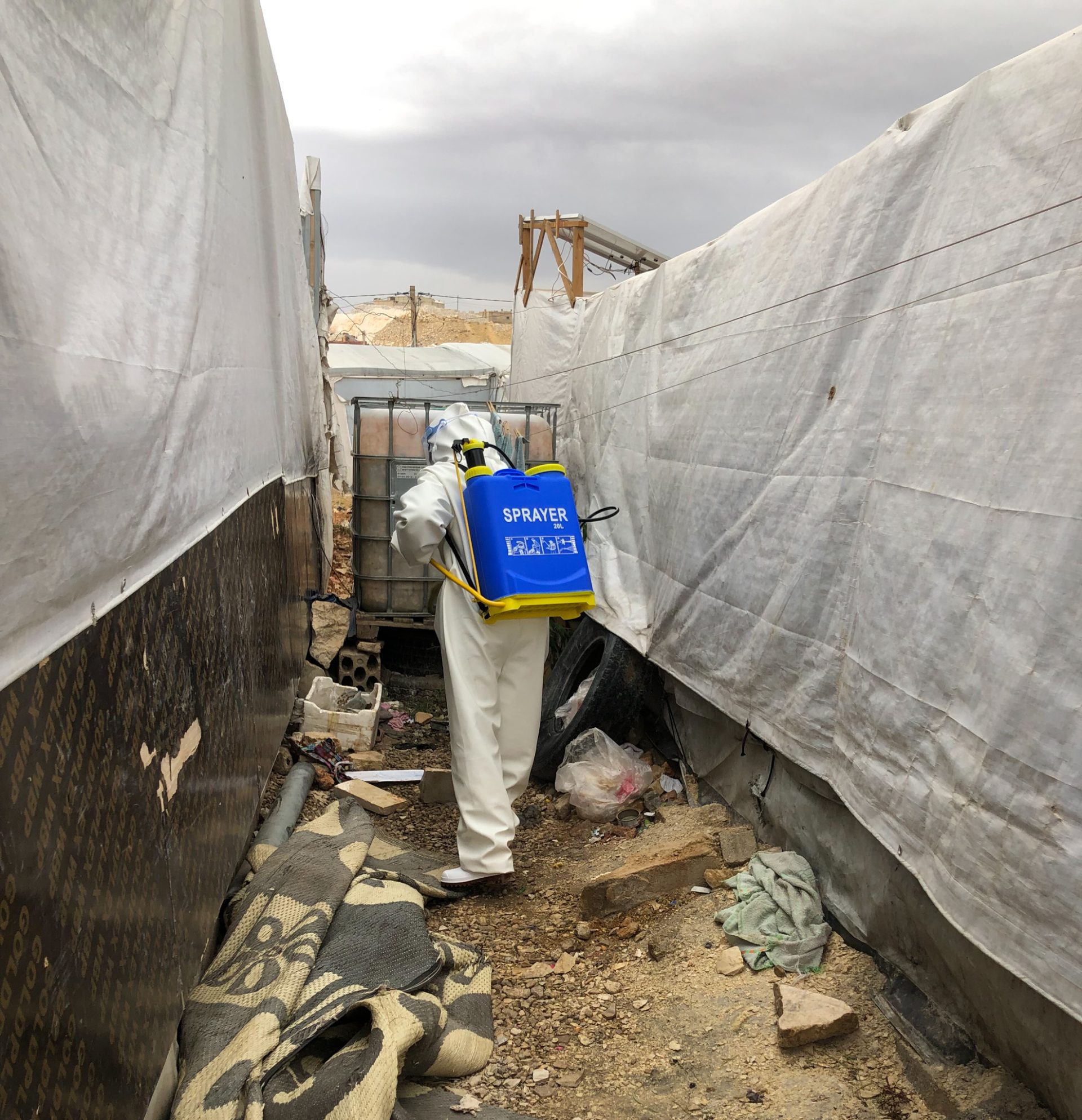- There have been 1.225 suspected and confirmed cases of cholera in Lebanon – 26 per cent of cholera cases concern children under five years of age
- International hunger charity, Action Against Hunger, is delivering hundreds of hygiene and disinfection kits to cope with the spread of disease
- The charity’s support is mainly concentrated in informal camps for Syrian refugees, often lacking basic health and water infrastructure
- Action Against Hunger, present in Lebanon since 2006, is working to prevent and contain the spread of cholera in Lebanon
On October 6th Lebanon declared that a cholera outbreak is spreading rapidly through the country; this was a few weeks after the disease was spotted in neighbouring Syria, with over 20,000 suspected cases and 80 deaths reported so far in the latest resurgence of the disease in the Middle East.
According to the World Health Organization, Lebanon is the latest country hit in a devastating outbreak that began in Afghanistan in June 2022 and then spread to Pakistan, Iran, Iraq, and Syria.
There are now at least 400 confirmed cholera cases in Lebanon, particularly concentrated in the northern rural area of Akkar (where the first case was detected), in the Bekaa valley and Hermel, as well as in Zahle and some parts of the south. Many of these areas contain informal camps which house refugees from the Syrian civil war. Seventeen people have died in Lebanon so far, with 26 per cent of the cases involving children.
Cholera is an acute diarrhoeal infection that is typically spread through water and food contaminated by faecal matter due to poor wastewater management and poor hygiene practices. Its spread is therefore closely linked to inadequate access to drinking water and sanitation. It can have serious health consequences, and even cause death if left untreated. Severe diarrhoea and severe dehydration are the worst complications of cholera. The infection can aggravate or even precede malnutrition as the body cannot absorb vital nutrients. This is due to the frequent vomiting and diarrhoea which cholera causes.
Action Against Hunger is therefore distributing oral rehydration solutions to treat severe diarrhoea and dehydration. A total of 201 units have been given to the affected population.
The organisation’s emergency team has been deployed, and household-level water tank cleaning campaigns have started in affected communities. The organization is delivering 35 litres of safe drinking water daily to all people in the informal camps of Aarsal and Deir El Ahmar clusters.
Action Against Hunger is also monitoring water quality in suppliers’ trucks and water tanks to make sure levels of chlorine are enough to eliminate any potential risk of contamination.
So far, 822 hygiene kits and 788 disinfection kits have been distributed in the affected camps in Aarsal along with cholera awareness and hygiene promotion campaigns reaching over 1.800 people in the Bekaa and in South Lebanon.
Lebanon’s water and sanitation sector never recovered from the destruction caused by a 15-year long civil war, two decades of post-conflict and the Syrian refugee crisis (with more than 1.5 million refugees in a country of just 4.5 million). The supply network does not provide enough drinking water for human consumption, forcing a large part of the population to consume untreated and contaminated water.
Wastewater management is also critical to keep waterborne diseases such cholera under control. However, 92% of the wastewater in Lebanon remains untreated and is discharged directly into the environment, posing a serious threat to public health in the country, and increasing the risk of cholera widespread in the territory.
This lack of access to safe water and sanitation services makes informal tent settlements (ITSs) near the Syrian border highly vulnerable to the spread of disease.
According to the Emergency Response Coordinator of Action Against Hunger in Lebanon, Iván Álvarez Colomina, “It is very likely that the situation will worsen. Lebanon is mired in a harsh economic crisis with a persistent and high inflation.
“Water and sanitation systems are not working because of rising energy costs. There are not enough funds available to cope with the situation, especially in the camps in the Bekaa Valley, where around 800,000 refugees still live.”
According to an assessment conducted by the Action Against Hunger team in Lebanon in the 493 informal settlements in Baalbek-Hermel, the worst-affected area where more than 19,000 people live, 80% of the households use unsafe water. In addition, 57% are consuming water with faecal contamination, and 20% of settlements reported open defecation due to lack of adequate sanitation.
ENDS
Notes to editor
- Action Against Hunger has previously supported communities in Haiti against a cholera epidemic. To read more information, please visit here.
- Interviews with Action Against Hunger UK’s spokespeople available upon request. Contact Lucy or David on press@actionagainsthunger.org.uk or 0208293 6130 to arrange.
- Action Against Hunger is the world’s leading charity stopping life-threatening hunger in its tracks. By training parents and healthcare workers to spot the signs, we get life-saving care to people who need it. Action Against Hunger’s research drives forward understanding of how to predict, prevent and treat life-threatening hunger. With unbeatable knowledge and unstoppable determination, the charity supported more than 26 million people across 51 countries in 2021.
- For more information, please visit Action Against Hunger UK’s website or follow Action Against Hunger UK on Twitter and Facebook, LinkedIn, and Instagram.


